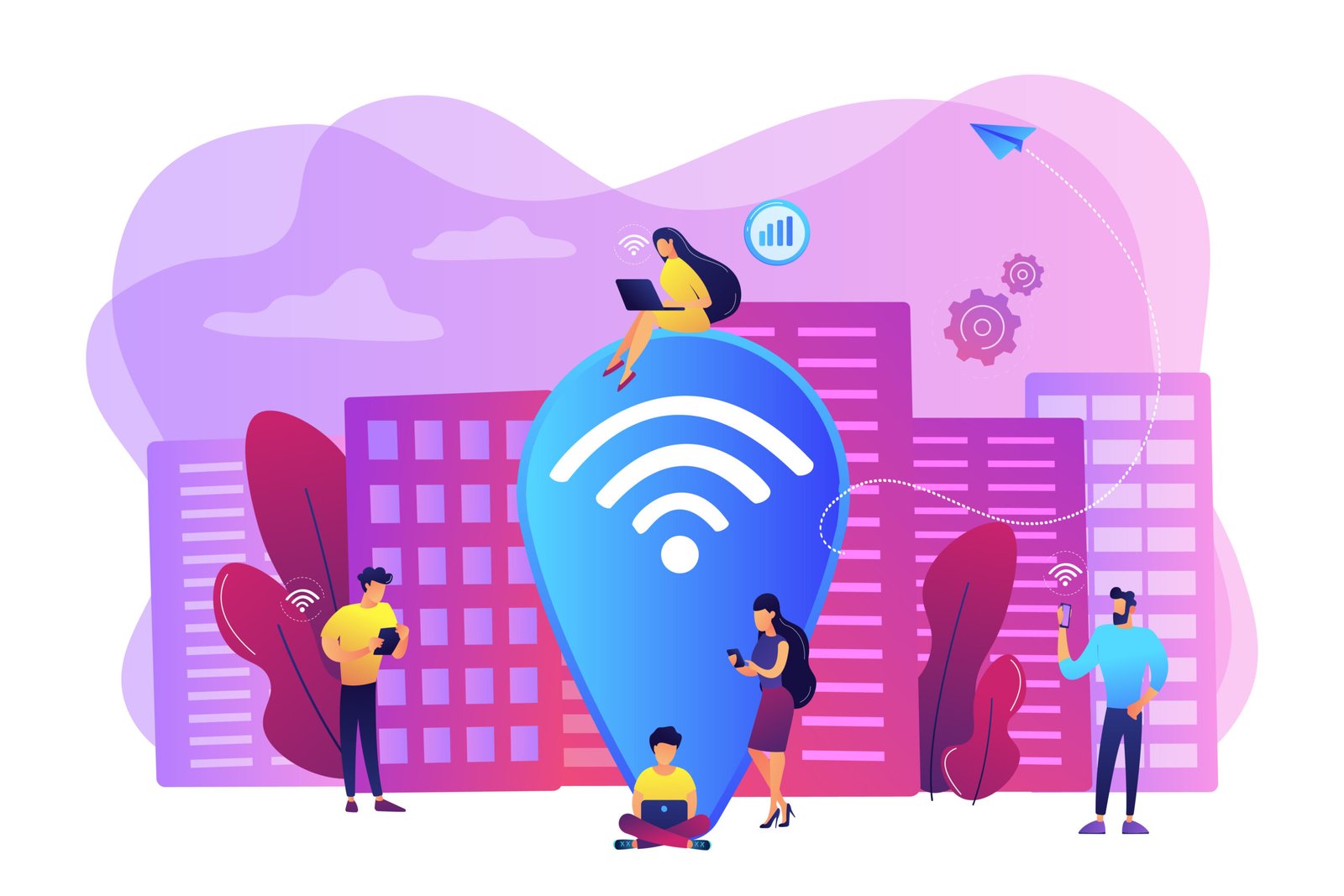You’ll find free Wi-Fi at the coffee place you love, your hotel lobby, the gate at the airport, and other public locations. It’s convenient, and in many cases, the best option when you’re running out of data. Joining a public network might seem harmless, but it can put you at genuine risk of cyber threats.
Luckily, you don’t have to be a tech genius to secure your accounts. But protecting yourself means understanding the risks first.
Why Public Wi-Fi Isn’t Always Safe
Free public Wi-Fi networks are usually non-encrypted and shared between hundreds of users, which makes them susceptible to hacking. Cybercriminals are eager to steal sensitive information such as usernames and passwords, credit card details, and even personal messages.
One of the most concerning and common attacks is called Man-in-the-Middle (MITM). In this scenario, a hacker intercepts communication between your computer and the service or site you’re visiting without your notice. They could monitor your moves, tamper with data, or even redirect you to deceptive websites that resemble genuine ones.
Imagine you log into your banking app at the airport. If the connection is intercepted, a hacker would get access to your login credentials. Popular destinations such as malls, transit centres, or even universities, are frequent target locations since attackers can easily mix with the crowd.
In 2023, a citizen of Nunavut lost $3 million in what the police described as an extremely clever internet scam. The RCMP thinks that the hacker may have used compromised credentials accessed through a public network, but as to the nature of this invasion, they’re still investigating. It’s one of the largest single cyber fraud cases in Canadian history.
What Can You Do to Stay Safe?
Use public Wi-Fi safely and confidently by developing a few smart habits and having the right tools at your disposal.
Use a VPN to Encrypt Your Connection
The easiest and most effective way to protect your online data is with a virtual private network (VPN). A VPN creates a secure tunnel between your device and the internet, encrypting the information you send or receive. Encryption means that even if someone tries to snoop on your connection, all they’ll see is unreadable data. A free VPN trial is a great way to test the benefits without a long-term commitment.
Avoid Sensitive Transactions on Public Networks
While you wait in line, it’s tempting to use public Wi-Fi to pay bills or check your bank account. However, you should avoid accessing sensitive information publicly, like shopping online, entering private data, or opening work emails with private files. If you need to get something done quickly, turn off Wi-Fi and use mobile data instead.
Stick to HTTPS Websites
Before entering any personal information, check that the website URL begins with “https” instead of just “http.” The “s” stands for “secure,” and it means the data sent between your browser and the site is encrypted. Modern browsers often show a padlock icon in the address bar.
Turn Off Auto-Connect Settings
Your phone or laptop might be set to automatically connect to public Wi-Fi networks. While convenient, this can lead to unintentional connections with rogue or malicious networks. Turn off auto-connect, and select the networks yourself. It costs a few more seconds, but it keeps your identity safe.
Enable Two-Factor Authentication
In case a hacker obtains your password, two-factor authentication (2FA) can save the day. It’s like a second barrier of security when the first one is breached. A hacker will have to verify your identity by using a code delivered by text message, app, or email to your phone, which they won’t have. Use 2FA with banking, email, social media, and any other account that contains personal information to prevent unauthorized access.
Update Your Software and Apps
Updates are used to fix security vulnerabilities. To stay safe against the latest threats, remember to update your operating system, browsers, and apps regularly.
Use Complex, Distinctive Passwords
Repeatedly using the same password on multiple sites compromises all of your accounts. A password manager will allow you to create and store secure and different credentials for each login.
Turn off AirDrop and File Sharing in Public
In shared areas, AirDrop, Bluetooth file sharing, and network discovery must be switched off. They can leave your device vulnerable to local attacks.
Use Public Wi-Fi Smartly, Not Fearfully
Don’t look at public Wi-Fi as the enemy. It can be a helpful tool when used wisely. To do so, always turn on a VPN before you connect. It’s a modest measure that provides security and privacy, allowing you to surf, stream, and shop in peace. Digital safety is as crucial as locking your front door, so don’t wait until something goes wrong and follow the rest of these steps to protect yourself in advance.

